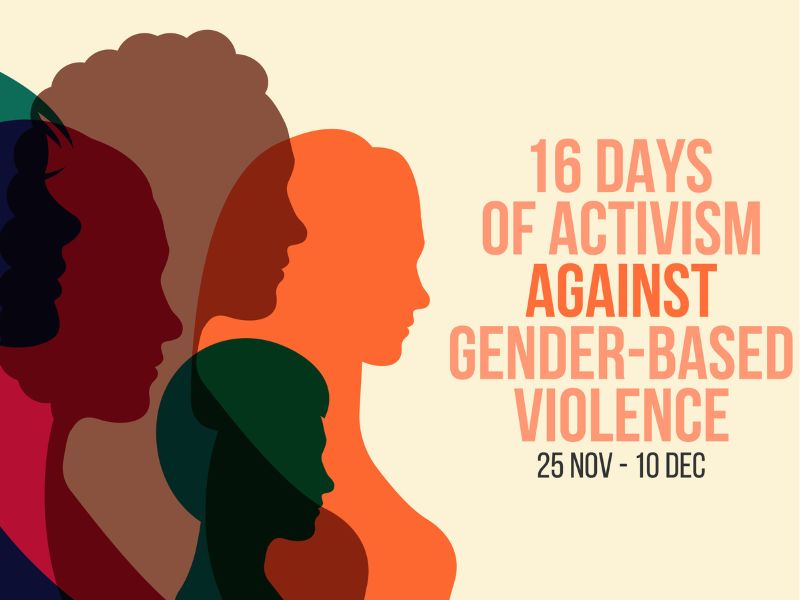
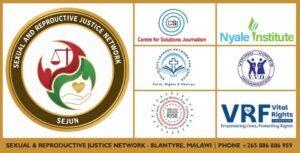
* The ruling acknowledges the urgent need for comprehensive healthcare and reproductive rights for girls, particularly for those who fall victim to sexual violence
* It is a step towards ensuring that victims of rape, incest, and defilement can access safe and legal abortion services as a vital component of their healthcare
By Duncan Mlanjira
As part of the commemoration of 16 Days of Activism Against Gender-Based Violence (GBV), Sexual Reproductive Justice Network (SEJUN) is calling on the Malawi Government to take immediate action in providing safe abortion services to victims of sexual violence, in light of the recent ruling by the Malawi High Court.

Advertisement
SEJUN — a registered coalition of organisations that assert that everyone has the right to control their bodies, sexuality, and reproduction, free from discrimination, coercion, and violence — maintains that the High Court ruling “acknowledges the urgent need for comprehensive healthcare and reproductive rights for girls; particularly for those who fall victim to sexual violence”.
“It is a step towards ensuring that victims of rape, incest, and defilement can access safe and legal abortion services as a vital component of their healthcare,” says the press release by SEJUN, who current members are Centre for Solutions Journalism (CSJ), Nyale Institute, Young Voices, Young Women Rise, Religious Leaders Network for Choice and Vital Rights Foundation.
“We know that without the immediate action of the government through the Ministries of Health, Gender, and Justice, and also the Malawi Human Rights Commission, this ruling risks being a hollow victory for many girls who continue to face the repercussions of sexual violence by, among others, being denied access to safe abortion.
“The ruling by the Malawi High Court is a landmark moment for justice and rights for girls who are victims of defilement and incest in our nation,” said SEJUN chairperson Dr. Godfrey Kangaude.

Dr Godfrey Kangaude
SEJUN co-chairperson, Miriam Chilemba added credence by describing the High Court ruling as “as a huge relief that restores the dignity of minors, who in the past were struggling to access safe abortion due to health facilities’ failure to full provide comprehensive sexual and reproductive health services as stated in the Gender Equality Act.
“It is imperative that the Malawi government act swiftly to implement policies that protect the rights of sexual violence victims, ensuring they have access to safe abortion services. No girl should be forced to suffer further as a result of her defilement,” she said.
In his ruling on October 28, 2025, High Court Judge, Justice Michael Tembo ordered that girls who have experienced sexual violence, if they wish, are free to seek safe abortions without any obstacles, as in accordance with Section 19 of the Gender Equality Act.
A case was brought before Justice Tembo after a 14-year-old girl — assisted by Nyale Institute of Reproductive Health — filed a lawsuit against a clinician at Chileka Health Centre, Blantyre District Council and the Minister of Health for failing to provide the minor with safe abortion after she was raped.
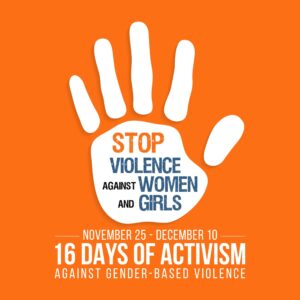
Justice Tembo observed that this infringed upon the minor’s sexual and reproductive health rights, and he emphasised that “the Court had no doubt in its mind that a purposive interpretation of section 19 of the Gender Equality Act entails that a girl victim of a sexual offence who is pregnant as a result of such an offence definitely has a right to seek an abortion automatically upon indications that she had become pregnant as a result of a sexual offence being perpetrated on her”.
Soon after the ruling, National Coordinator for Religious Leaders Network for Choice, Rev. Cliff Nyekanyeka, applauded the Judge saying the ruling sets free minors who fall pregnant through rape and defilement “from the torment of carrying forced pregnancies to term while suffering alone in silence”.
He thus applauded the Judge for considering the aspect of mental health and trauma associated with defilement, rape and other sexual abuse — and in solidarity with SEJUN, Rev Nyekanyeka amplified the need for the government to make sure that the ruling is enforced as soon as possible.
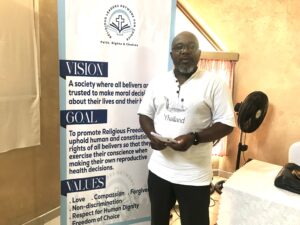
Rev. Cliff Nyekanyeka
“We believe in safeguarding the dignity and integrity of all human beings who are created in the image of God,” he said in the press release. “All religious denominations across the globe prohibit rape and stipulate punishment for perpetrators of the vice.
“If we truly believe that life is sacred, we should also recognise that a girl’s body is sacred. No one should be allowed to defile her sanctity, let alone force her to keep a pregnancy that she never planned to have,” said Rev. Nyekanyeka.
SEJUN thus urges all stakeholders, including government officials, Members of Parliament, healthcare providers, and civil society organisations, “to collaborate on a framework that prioritises the health and safety of girls and women”.
“The time for action is now; the lives of countless women depend on the government’s commitment to uphold sexual and reproductive health justice.”
In announcing the launch of the 16 Days of Activism Against GBV — under the theme; ‘UNiTE to End Digital Violence against All Women and Girls’ — Minister of Gender, Children, Disability & Social Welfare, Mary Navicha, fell short of highlighting the aspect of the High Court by just concentrating on concerns raised over rising cases of online abuse affecting women, girls, men and children.
At a press briefing in Lilongwe yesterday, where she announced that Malawi will officially launch its commemoration of the 16 Days of Activism Against GBV on Thursday at Khwisa Primary School in Balaka, Navicha just highlighted on the theme, saying it reflects the growing challenges Malawians are facing online.

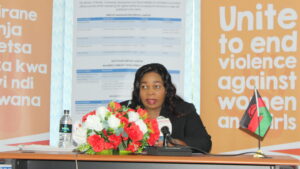
Gender Minister, Mary Navicha
She emphasised that digital platforms are increasingly becoming spaces for cyberbullying, sexual harassment, misinformation and other forms of psychological abuse — which are pushing many victims into depression and, in severe cases, suicide.
In alluding that sexual violence “pushes many victims into depression and — in severe cases, suicide” — Minister Navicha seems to agree entirely with Justice Tembo, who considered in his ruling the aspect of mental health and trauma associated with defilement, rape and other sexual abuse.
But she fell short to comment on the ruling by just saying: “We cannot ignore what is happening on our digital platforms. As a Ministry, we are pushing for the criminalisation of digital violence, and we want online abusers to be held accountable.”
She added that the government is prioritising digital literacy, better reporting systems and collaboration with technology companies to protect vulnerable groups, especially women and girls who face higher levels of online exploitation.



Advertisement
